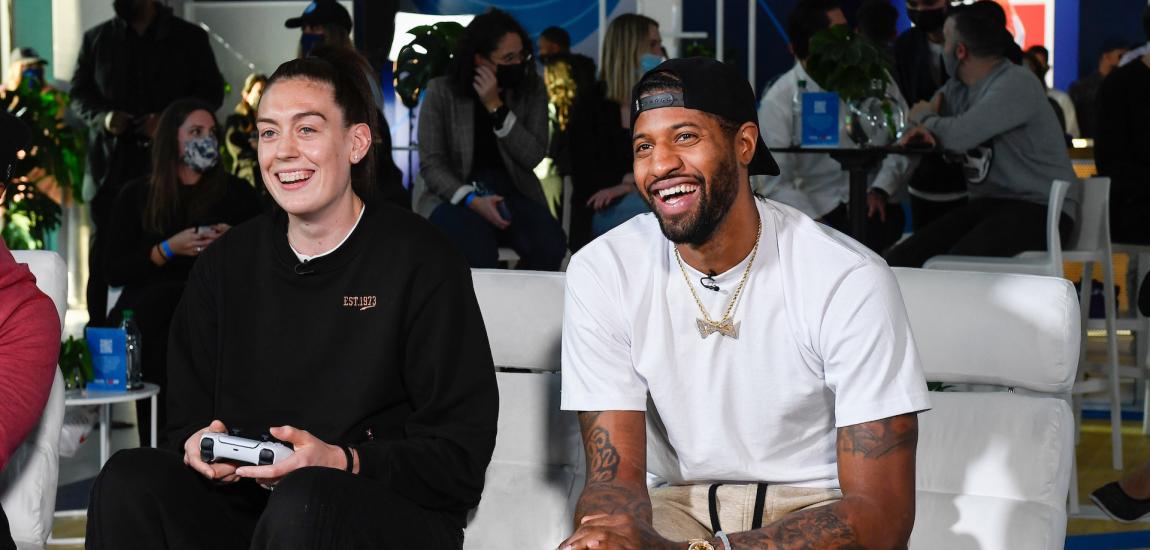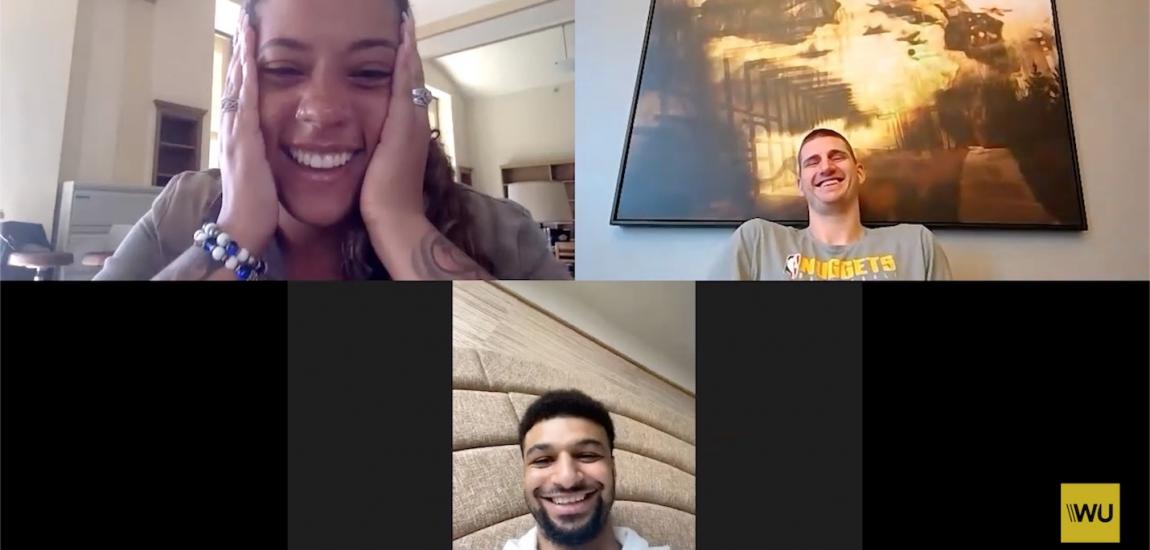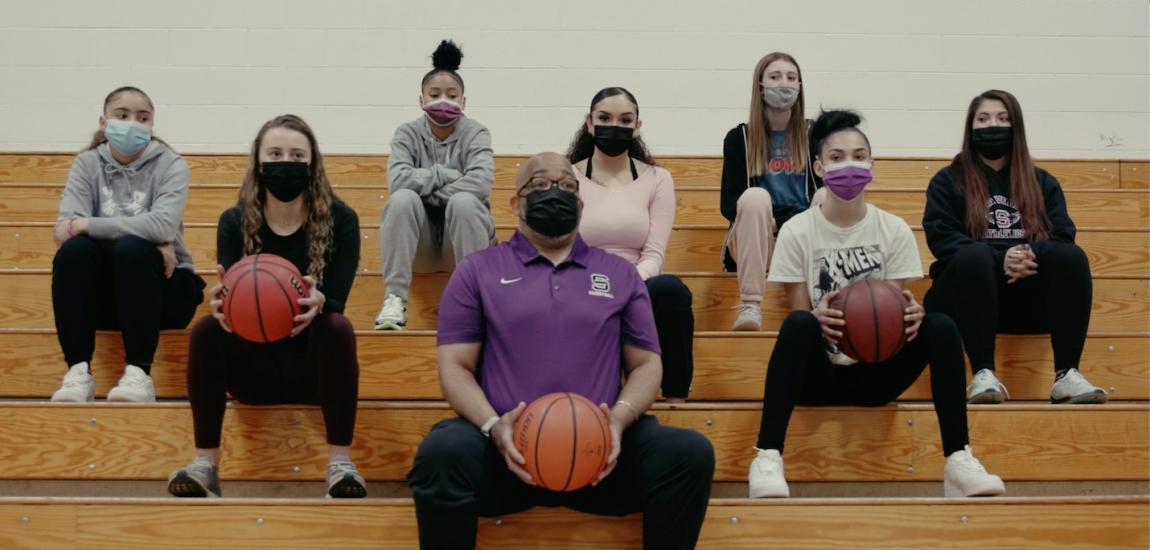Joe Nocera and Ben Strauss are the authors of INDENTURED: The Inside Story of the Rebellion Against the NCAA. The book chronicles various aspects of money, race, abuse of power, law, education, media and economics that converge to give fans a billion-dollar sports-entertainment industry while short-changing the labor force of athletes.
ThePostGame: What was the most surprising fact that your reporting for the book yielded?
BEN STRAUSS: The story of Mark Alcorn and Dale Brown really sticks with me. Alcorn was a basketball player at LSU in the 1980s, playing for coach Dale Brown. Alcorn was diagnosed with cancer and returned home to Missouri for treatment. His parents later threw a fundraiser for him, and asked Brown if he could send three of Alcorn's teammates to the event. After having poured so much money into treatment for their son, they asked if Brown and LSU could cover the cost. It was, essentially, Alcorn's dying wish. Brown said of course. The governor of Louisiana even offered to let the players use his private plane. But the NCAA said paying for players’ transportation violated their rules. In response, Brown called the players into his office and drew the blinds. He handed them envelopes filled with cash, enough to cover a red-eye flight, a hotel room and some food. He related this story and said here he was performing this basic act of human kindness and he felt like the NCAA was watching him, he felt like he was a criminal. So I would say seeing how NCAA rules have been applied over the years was pretty shocking.
TPG: The Ed O'Bannon case about the NCAA not paying athletes for names, images and likenesses on video games and other merchandise is still working its way through the courts. How do you see it ultimately being resolved?
JOE NOCERA: I wish I knew. So far both the district court and an appeals court have ruled that the NCAA amateurism rules violate the antitrust laws. But both courts, in effect, have allowed those rules to remain in place -- even after describing them as illegal! The appeals court even took away a $5,000 trust fund federal judge Claudia Wilken had established as part of the remedy, on the grounds that the trust fund wasn't related to education.
Just the other day, the O'Bannon plaintiffs appealed to the Supreme Court. The NCAA will likely do the same in April. Although the Supreme Court takes a tiny percentage of the cases that are appealed to it, the O'Bannon case has a shot -- it is high profile, with an unusual set of issues, and the question of whether the NCAA rules violate the law really need to be decided once and for all. Because the issue doesn't fall within the traditional left/right definitions, it is impossible to know how the justices might rule. But if they rule for the NCAA, the reform movement will be dead.
TPG: Will we continue to see more schools switching conferences in the next 10 years or have most of the options been exhausted by now?
NOCERA: Well, the Big 12 only has 10 members, and it's also the only conference that doesn’t have a lucrative football championship game. I expect the Big 12 to add two more teams relatively soon, perhaps this summer. Houston, Cincinnati, UConn and BYU are all jockeying for position. Beyond that, I think you could see a day when all schools that truly want to play big-time football are in "Power conferences" -- maybe there will be six or seven of them. Ditto for basketball. In effect, they will be national conferences. But all the other sports will be in smaller, regional conferences that cost less and require less travel by the athletes. Hockey already does this. Other non-revenue sports should follow.
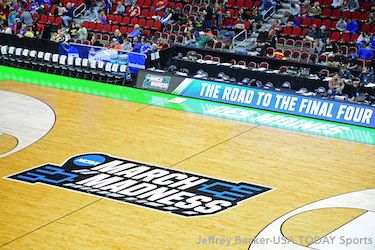
TPG:The NCAA has already given the so-called Power 5 conferences a certain level of autonomy in creating its own rules. Can you see the Power 5 defecting from the NCAA and becoming its own entity?
NOCERA: The Power 5 made noises about leaving the NCAA not because they really wanted to leave. They were tired of being constantly outvoted on issues they cared about by all the smaller, but more plentiful, schools. Now that they have autonomy -- and can call their own shots -- they have no reason to leave the NCAA. The NCAA takes care of running national champions, not just in basketball but in all sports. Nobody wants to see March Madness go away -- it brings in buckets of money, much of which gets distributed to schools. And although university athletic departments hate it when one of their programs is being investigated by the NCAA, they like the fact that the NCAA is trying to enforce rules around recruiting and the like, because it means their competitors can do things they can't.
TPG: There have been murmurs for years about how college athletes could make a huge statement by boycotting or striking a big event like the Final Four or bowl game at the last minute. Can you ever see that happening?
STRAUSS: The football team at Missouri set a strong precedent for what can happen when players speak up and exercise their rights. Last year there were incidents of racism on campus and as soon as the football team went on strike to protest the president resigned in 36 hours. Players around the country saw that, and I think consciousness is growing. Nigel Hayes, a basketball player at Wisconsin, for example, had some pretty biting comments about amateurism in recent weeks. It's certainly difficult for 18- and 19-year-old players -- many of whom think they have pro careers ahead of them -- to take such a stand, but players are more aware of the inequities in college sports today than ever before.
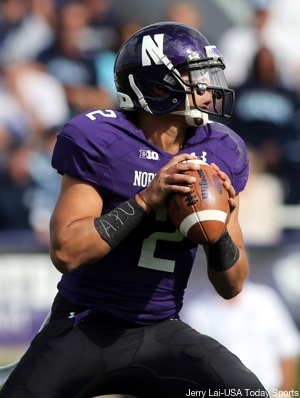
TPG: How will history treat Kain Colter for his efforts in forming a union with Northwestern football?
STRAUSS: He'll be remembered as a trailblazer, someone in the Curt Flood mold, who spoke out against the powers that be and tried to make change for college athletes. Since the union push, schools now offer cost of attendance stipends, many guarantee four-year scholarships and some even promise medical care beyond an athlete's eligibility. Colter and the Northwestern -- as well as the O’Bannon lawsuit -- played an important role in that progress.
TPG: If you're NCAA president, what's the first rule you enact?
STRAUSS: I think schools are morally responsible to do two things, which are very hard to argue against: Offer lifetime health insurance and lifetime scholarships. Athletes should be able to return to school when they're not spending 50 hours a week on their sport and focus on the education they have been promised. Also, they should never pay a medical bill on an injury they suffered while competing for their school.
Beyond that, the rulebook should certainly be simplified, and some of the billions of dollars flowing through college sports should be shared. At the very least, college athletes should control their names and images and be allowed to do endorsements, like in the Olympics.
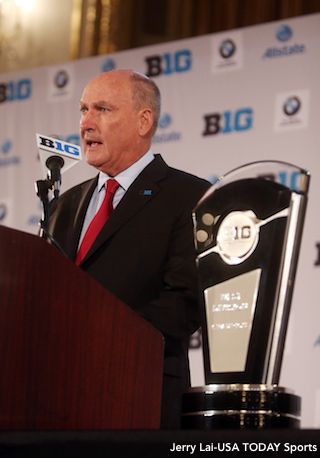
TPG: Big Ten commissioner Jim Delany has been ahead of the curve on expansion and TV. Where might his next foray be?
NOCERA: Great question. I could see him getting a sponsor for the Big Ten itself ("The McDonald's Big Ten.") It seems plausible that he could try to turn the Big Ten into the first truly national conference by trying to poach, say, a Texas from the Big 12, or a UCLA or an Oregon from the Pac 12, especially since the Rose Bowl is no longer exclusively a Big Ten-Pac 12 game. Also, keep an eye on the next Big Ten television deal. The Big Ten's pact with ESPN is up in 2017 and the amount of money the Big Ten is set to command is going to staggering. But strange as this may sound, I could also see him trying to get the Big Ten schools to institute, say, lifetime health insurance for athletes. Why? Because he hates the rise of NCAA critics like Ben and I, and he wants to show the world that the Big Ten, at least, cares about its athletes.
TPG: The book acknowledgements include a line about Mark Emmert's agreeing to be interviewed "knowing full well that our book was unlikely to treat either him or the NCAA kindly." What will be his legacy as NCAA president?
STRAUSS: Emmert was billed as a reformer when he took over the office. He wanted to give players stipends, he wanted to streamline the rulebook. But he ran into the bureaucracy of the NCAA and rubbed some people the wrong way in the process, which hurt his ability to accomplish much. At this point, he's become the face of that bureaucracy and is the symbol for a lot of what's wrong with the NCAA. I think, rightly or wrongly, he'll be remembered more for his various PR gaffes than for anything else.
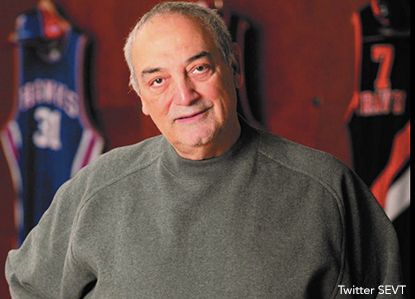
TPG: Sonny Vaccaro, who is featured prominently in your book, is such a compelling character. Can you share a favorite Vaccaro story that just didn't fit into the book?
STRAUSS: Sonny was in the courtroom for just about every minute of the O'Bannon trial during the summer of 2014. He had flown in with his wife, Pam, from Palm Springs and the idea that the NCAA was on trial made his heart sing. Court was in session from 9-1 every day and Sonny was one of the first people in line to get inside most every day. I sat in press row in the courtroom and Sonny would usually be a few rows behind me. And every time he noticed something during the trial or something interesting happened, he would text me. Sonny, you should know, isn’t much of a texter. His fingers, he says, are too nubby to hit the right buttons on his phone. So I got these strings of jibberish texts from him throughout the days in court, my phone buzzing constantly. Sonny knew the messages were mostly unintelligible, but he had to text anyway. He couldn't help himself.
TPG: The late James Gandolfini had been tapped to play Sonny in a movie. Who would you cast now?
STRAUSS: Sonny is an older guy now, but to tell the whole Sonny Vaccaro story you have to start when he was much younger. To handle the range you need an actor like Paul Giamatti.
INDENTURED is available for purchase on Amazon, Barnes & Noble and iTunes. Follow Joe Nocera on Twitter @NoceraNYT. Follow Ben Strauss on Twitter @benjstrauss.



